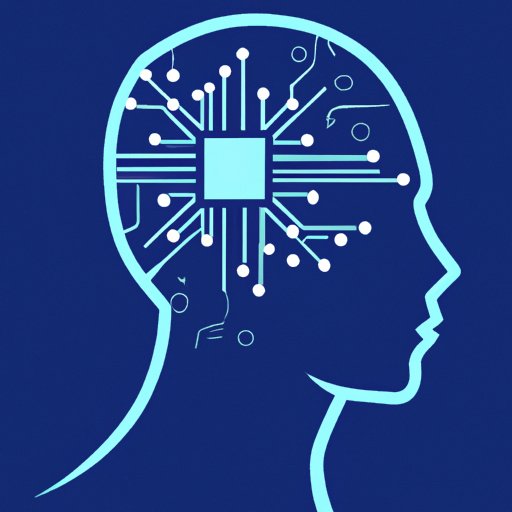Introduction
Artificial intelligence (AI) is a rapidly growing field that has been making headlines in recent years. AI is an interdisciplinary science that combines computer science, mathematics, and psychology to create intelligent machines that can learn and think like humans. AI technologies are being used in a variety of areas, from healthcare to manufacturing, to help automate processes and improve efficiency. In this article, we will explore what exactly is AI, its impact on society, how it is being used in both human and machine learning, and what the future might hold for this technology.
Definition and Applications of Artificial Intelligence
At its core, AI is a type of computer software that is designed to act as if it were a human. It is capable of learning, planning, problem-solving, and decision-making. AI can be used to automate tasks that would otherwise require human intervention. For example, AI can be used to power self-driving cars, personal assistants, and facial recognition systems. AI is also being used in healthcare to diagnose and treat patients, in manufacturing to optimize production lines, and in finance to manage investments.

Overview of Artificial Intelligence Technologies
There are several different types of AI technologies, including natural language processing (NLP), computer vision, and robotics. NLP is the ability of a computer to understand and interpret human language. Computer vision is the ability of a computer to recognize objects in images or videos. Robotics is the use of robots to perform tasks that would otherwise require human labor. All of these technologies are being used to enhance the way we interact with computers and the world around us.

Impact of Artificial Intelligence on Society
The impact of AI on society is both positive and negative. On the positive side, AI has the potential to revolutionize many industries, from healthcare to transportation. AI can help speed up processes, reduce errors, and improve decision-making. On the negative side, AI can lead to job displacement and increased inequality. There are also concerns about privacy and security when it comes to AI technologies.

Human and Machine Learning with Artificial Intelligence
One of the most important uses of AI is in machine learning. Machine learning is the process of using algorithms to find patterns in data and make predictions about the future. It is used in a variety of applications, from predicting stock prices to identifying objects in images. Human learning, meanwhile, is the process of using experience and knowledge to solve problems and make decisions. While there are some similarities between human and machine learning, they are fundamentally different processes.
Benefits of Artificial Intelligence
In addition to its use in machine learning, AI can provide numerous benefits to both businesses and individuals. It can help automate mundane tasks and make them more efficient, freeing up time and resources that can be put to better use. AI can also be used to analyze large amounts of data quickly, which can help organizations make more informed decisions. Finally, AI can be used to improve customer service and provide personalized experiences for customers.
Challenges of Artificial Intelligence
While there are many potential benefits to AI, there are also some challenges that must be addressed. One of the main concerns is security and privacy. As AI becomes more advanced, the risk of malicious actors using it for nefarious purposes increases. Additionally, there are social issues that must be taken into account, such as the potential for AI to exacerbate existing inequalities or lead to job displacement.
Future of Artificial Intelligence
Despite the challenges, experts predict that AI will continue to grow in importance in the coming years. AI is expected to become more powerful and more widely used in a variety of fields, from healthcare to education. Additionally, AI is expected to become more sophisticated, with the potential to simulate human behavior and make more complex decisions. Finally, AI is expected to become more accessible, with the potential to be used by anyone with access to a computer.
Conclusion
AI is a rapidly evolving technology that has the potential to transform many aspects of our lives. Its applications are broad and its potential for growth is immense. However, there are still challenges that must be addressed, such as security and privacy concerns and social implications. As AI continues to evolve, it will be interesting to see what the future holds for this powerful technology.
(Note: Is this article not meeting your expectations? Do you have knowledge or insights to share? Unlock new opportunities and expand your reach by joining our authors team. Click Registration to join us and share your expertise with our readers.)
